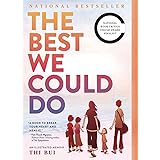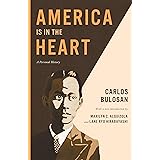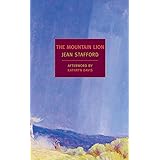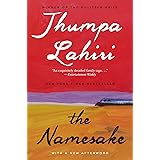
Enjoy fast, free delivery, exclusive deals, and award-winning movies & TV shows with Prime
Try Prime
and start saving today with fast, free delivery
Amazon Prime includes:
Fast, FREE Delivery is available to Prime members. To join, select "Try Amazon Prime and start saving today with Fast, FREE Delivery" below the Add to Cart button.
Amazon Prime members enjoy:- Cardmembers earn 5% Back at Amazon.com with a Prime Credit Card.
- Unlimited Free Two-Day Delivery
- Streaming of thousands of movies and TV shows with limited ads on Prime Video.
- A Kindle book to borrow for free each month - with no due dates
- Listen to over 2 million songs and hundreds of playlists
- Unlimited photo storage with anywhere access
Important: Your credit card will NOT be charged when you start your free trial or if you cancel during the trial period. If you're happy with Amazon Prime, do nothing. At the end of the free trial, your membership will automatically upgrade to a monthly membership.
Buy new:
-16% $16.01$16.01
Ships from: Amazon.com Sold by: Amazon.com
Save with Used - Good
$7.82$7.82
Ships from: Amazon Sold by: Jenson Books Inc

Download the free Kindle app and start reading Kindle books instantly on your smartphone, tablet, or computer - no Kindle device required.
Read instantly on your browser with Kindle for Web.
Using your mobile phone camera - scan the code below and download the Kindle app.

OK
 Audible sample Sample
Audible sample Sample 


No-No Boy (Classics of Asian American Literature) Paperback – August 1, 2014
Purchase options and add-ons
"No-No Boy has the honor of being among the first of what has become an entire literary canon of Asian American literature," writes novelist Ruth Ozeki in her new foreword. First published in 1957, No-No Boy was virtually ignored by a public eager to put World War II and the Japanese internment behind them. It was not until the mid-1970s that a new generation of Japanese American writers and scholars recognized the novel's importance and popularized it as one of literature's most powerful testaments to the Asian American experience.
No-No Boy tells the story of Ichiro Yamada, a fictional version of the real-life "no-no boys." Yamada answered "no" twice in a compulsory government questionnaire as to whether he would serve in the armed forces and swear loyalty to the United States. Unwilling to pledge himself to the country that interned him and his family, Ichiro earns two years in prison and the hostility of his family and community when he returns home to Seattle. As Ozeki writes, Ichiro's "obsessive, tormented" voice subverts Japanese postwar "model-minority" stereotypes, showing a fractured community and one man's "threnody of guilt, rage, and blame as he tries to negotiate his reentry into a shattered world."
The first edition of No-No Boy since 1979 presents this important work to new generations of readers.
- Print length232 pages
- LanguageEnglish
- PublisherUniversity of Washington Press
- Publication dateAugust 1, 2014
- Dimensions8.4 x 5.4 x 0.8 inches
- ISBN-100295994045
- ISBN-13978-0295994048
- Lexile measure900L
Frequently bought together

Similar items that may deliver to you quickly
Editorial Reviews
Review
"Asian American readers will appreciate the sensitivity and integrity with which the late John Okada wrote about his own group. He heralded the beginning of an authentic Japanese American literature."―Gordon Hirabayashi, Pacific Affairs
"Nisei will recognize the authenticity of the idioms Okada's characters use, as well as his descriptions of the familiar Issei and Nisei mannerisms that make them come alive."―Bill Hosokawa, Pacific Citizen
"[This new edition] brings Okada's groundbreaking work to a new generation . . . an internee and enlisted man himself, [Okada] wrote in a raw, brutal stream of consciousness that echoes the pain and intergenerational conflict faced by those struggling to reconcile their heritage to the concept of an American dream."―Nancy Powell, Shelf Awareness
"It is both an important document of Japanese American and Pacific Northwest history and a compelling novel."―Emily Lutenski, Pacific Northwest Quarterly
"Reading No-No Boy, this week, it no longer seemed bound to its past; it felt like a prophecy, a cosmic tragedy, a message in a bottle that arrives a half century later."―Hua Hsu, Page-Turner
"It's incorrect to say that No-No Boy is a forgotten masterwork . . . but it isn't often acknowledged for articulating what had never been said before. The novel was a turning point in the consciousness of Japanese-Americans, and of Asian-Americans more generally―it marked the moment when identity shifted away from the homeland, away from Japan, because Japan was a country that Nisei, like Okada, never really quite knew. It was a novel that struggled to understand the entitlement that came so easily to other Americans―to explain why so few Japanese-Americans protested what had been done to them, that explored the shame of an immigrant who doesn't feel he has a place in the world."―T: The New York Times Style Magazine
"No-No Boy may be read as a test of character, questioning the rigid binary of loyalty―yes or no―and teaching us what makes us human and complex, what constitutes character, are all the questions and cares that exist between yes and no: ethical and political choices, our best intentions, our social and cultural being, beliefs, courage, fears, failures, and compassion. More than half a century later, Okada's novel challenges us once again with the question of character, asking us, as individuals and as a society, what we are made of."―Karen Tei Yamashita, Atlantic
"In 2019, No-No Boy is bigger than it's ever been."―Vince Schleitwiler, The Margins
"I think back to John Okada, who fought in World War II even though his Japanese-American family was in an internment camp. Okada came back from the war and published No-No Boy in 1957, the first novel dealing with the little-known story of Japanese-American draft resisters. . . . Thinking back to writers like Sui Sin Far, Carlos Bulosan and John Okada, it is clear that genius is too often unrecognized in its day."―Viet Thanh Nguyen, New York Times
"A slow-building 1957 novel about a young Japanese-American who, after the Second World War, is searching for a way to express his psychological anguish. . . . Okada died in 1971, unaware that his book had been discovered by a younger generation."―Hua Hsu, The New Yorker
"It may be one of the only true classics of Japanese fiction that most Japanophiles have never heard of. No-No Boy . . . unravels the complicated, varied perspectives of Japanese-Americans in the aftermath of World War II under the shadow of the internment camps of the American northwest. . . . For the fascinating, multiple perspectives that unfold to reveal one important point in history, the novel deserves its place as a classic."―Japan Times
"Out of the brutal struggle against racism and anger, Okada finds hope."―Martha Viehmann, NPR - Code Switch
"No-No Boy is not simply a forceful piece of Asian American literature, but also a realistic account of how war and social injustices affect the psychology of Japanese Americans across generations. . . . Presenting the trauma of Japanese Americans and their coping process, No-No Boy is itself and effort to break the silence and counter social amnesia."―Inquiries Journal
"The book is still the great Japanese American tragedy, whose power and authenticity derives from the unexpressed rage of his generation that Okada pours into his characters."―Frank Abe, International Examiner
"The book, newly relevant today, evolves into a group portrait of immigrant parents and American children, conflicted veterans and no-no boys, those back home from the camps and those repatriated to Japan alike, all trying to move on from the same injustice."―Nicholas Kulish, New York Times
"No-No Boy has been at the heart of the Asian American literary canon, where it is often treated as a quasi-miraculous artifact that prophesied a literary renaissance that would only come to fruition after the author's death."―Los Angeles Review of Books
"No-No Boy should be read as a salutary reminder of the tragic aftermath of Pearl Harbor, as the story of the distress of a young rebel torn between two societies, but also as a literary testimony to the mass political violence around human rights."―En attendant Nadeau
"[S]eminal novel . . . .a significant book that influenced many Asian American writers who came after Okada."―New York Magazine
"A gut punch of a novel . . . The bitter shame of having one's fealty questioned, the aching pain of family conflict, the lurking sadness of a community shattered by internment and beset by the existential question of how to truly belong to this country―with the particular honesty that fiction can afford, Okada manages to capture it all."―Jane Yong Kim, The Atlantic
About the Author
John Okada was born in Seattle in 1923. He served in the U.S. Army in World War II, attended the University of Washington and Columbia University, and died of a heart attack at the age of 47. No-No Boy is his only published novel.
Product details
- Publisher : University of Washington Press; Reprint edition (August 1, 2014)
- Language : English
- Paperback : 232 pages
- ISBN-10 : 0295994045
- ISBN-13 : 978-0295994048
- Lexile measure : 900L
- Item Weight : 11.2 ounces
- Dimensions : 8.4 x 5.4 x 0.8 inches
- Best Sellers Rank: #79,160 in Books (See Top 100 in Books)
- #18 in Asian American Studies (Books)
- #283 in Asian American Literature & Fiction
- #32,351 in Genre Literature & Fiction
- Customer Reviews:
About the author

Discover more of the author’s books, see similar authors, read author blogs and more
Customer reviews
Customer Reviews, including Product Star Ratings help customers to learn more about the product and decide whether it is the right product for them.
To calculate the overall star rating and percentage breakdown by star, we don’t use a simple average. Instead, our system considers things like how recent a review is and if the reviewer bought the item on Amazon. It also analyzed reviews to verify trustworthiness.
Learn more how customers reviews work on Amazon-
Top reviews
Top reviews from the United States
There was a problem filtering reviews right now. Please try again later.
Most answered “yes”; those who answered “no” were referred to as No-No Boys. Their reasons were complex; some had family living in Japan, others didn’t understand why they should give their lives to a country who had stripped them of all rights of citizenship (despite being born in America).
And that preamble brings us to this novel, written in J957 by John Okada (the Seattle-born author himself fought for America in the war). At the opening of the book, his No-No Boy, a disgraced Ichiro Yamada, has spent two years in prison at a time when war fever was at a peak pitch. He is universally despised by Americans (including those of Japanese descent) and his family – a half-crazy mother who believes Japan has won the war, a passive father, and a younger brother who despises him – makes him feel like a stranger in a strange land. In one particularly strong passage, Ichiro says “It is not enough to be only half an American and know that it is an empty half. I am not your son and I am not Japanese and I am not American.”
Who is Ichiro Yamada then, and where does he belong? That is the question at the crux of this novel. Riddled by shame, seething with anger, coping with mixed feelings about the only country he has known – its horrific treatment of those of Japanese descent combined with its its generosity of heart – Ichiro’s radicalized persona is a stand-in for second-generation Japanese men who were forced to confront this darkness.” Upon meeting one kind man, Ichiro ponders, “What words would transmit the bigness of his feelings to match the bigness of the heart of this American who in the manner of his living, was continually nursing and worrying the infant America into the greatness of its inheritance?”
With his secondary characters—Ichiro’s brother, his draft resister pals, and those who took a different path (notably Kenji who is slowly dying of his wounds and Ralph, who reenlisted), John Okada provides a 360-degree look at the men of those times. As a literary book, it can be a bit rough around the edges; it’s not perfect. But it is still compelling and unique and courageous. Ruth Ozeki, herself a wonderful writer, pens a superb foreword that captures the book’s meaning for a whole new generation of writers of Japanese descent. The questions this book raises are timeless and universal.
I learned about this book because of some recent controversy over the re-publication of this book by Penguin Books. Penguin claims the work was not properly copyrighted and is public domain property. Since 1976, University of Washington Press had been publishing No-No Boy (and sending royalties to the Okada family). I bought and read the UW Press edition.
Ichiro is shunned by the Japanese Americans that served in the military and saw him as a traitor to the United States. He is shunned by Whites because he looked Japanese. He was stuck in a no-man’s land of being seen as neither Japanese nor American. While this book is fiction, the emotions and situations were real. The Japanese Americans returning to their homes after the WWII internment was extremely difficult, and for those that were “no-no boys”, their experiences had to have been heart-wrenching. This book captures powerful emotions.
What makes this story remarkable is that it was written at a time when no one talked about the Japanese American experience and how it affected them. Okada does a wonderful job of presenting the nearly hopeless, desperate dilemma faced by Ichiro. Okada’s writing style is almost poetic; it has rhythm.
Okada does an admirable job of describing life in post-war Seattle, identifying streets and landmarks by name. One curious technical error is a reference to watching the local Seattle baseball team on television. At the time, televisions were available to the public but prohibitively expensive for households, especially Japanese returning from internment camps where everything had been taken from them. There was also no televised Seattle (Rainiers) baseball in the years immediately after the Japanese return to the coast (about 1947). The Seattle Rainiers didn’t televise their games until 1956. It took me a few days of research to check this out including watching a 90-minute documentary on the history of the Seattle Rainiers.
I rate this book 5 stars because it evokes the emotional strain Japanese Americans must have felt after the war and because it was a landmark publication for its time.












